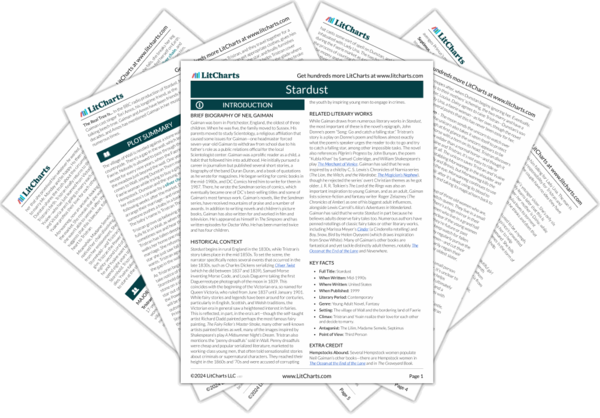Captain Alberic and the small hairy man (and even Primus) function as Tristran’s mentors, teaching him and guiding him to safety as he comes of age over the course of their journey. They’re able to do this, and offer the advice they do, in part because their age has given them wisdom—and in contrast to Morwanneg, they see it as their responsibility to pass that wisdom on to the next generation rather than hoarding it. Tristran feels the sense of loss disembarking the
Perdita because, in a way, he comes of age—leaves childhood behind—as he does so.
